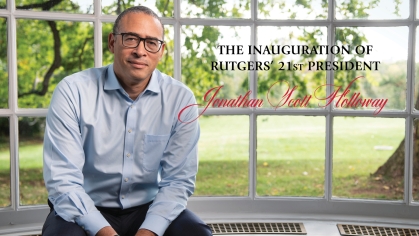Working Against Hate
Dear Rutgers University – Newark community members,
Our hearts are broken today for the families of the victims at Tree of Life synagogue, for the greater Pittsburgh community, and for the broader Jewish community, as we join them in mourning the lives violently taken yesterday from them and from all of us.
We also join communities everywhere in bewilderment at the resurgence of hatred over religion, race, gender, sexual orientation, nationality, or political beliefs, which we so fervently wish were entombed in the past. We struggle to comprehend the eruptions of just this past week such as the targeted killings of African Americans in Kentucky and the bombs sent to public servants in multiple states. At the same time, we fight desensitization to divisiveness too often fomented into vitriol, terroristic threats, or acts of violence, as people turn against those they perceive as “other” employing the language—or even the weapons—of war.
At times like these, as basic as it may seem, we must remember the words of Newark Rabbi Joachim Prinz spoken from the steps of Lincoln Memorial at the March on Washington rally just before Dr. Martin Luther King, Jr. spoke 55 years ago: “Neighbor is not a geographic term. It is a moral concept. It means our collective responsibility for the preservation of man's [sic] dignity and integrity.”
In a community as beautifully diverse as ours and as committed as we are to not just be diverse, but to do the hard work of diversity, when we hear vitriol over difference, we must listen also for the echo of Rabbi Prinz in the words of contemporary leaders such as Eboo Patel, who urges us to “see the other side, to defend another people, not despite your tradition, but because of it.” An essential element of making such common cause is to recognize likewise, as Patel says, that even in a world where people disagree on fundamental things, we can still work together on fundamental things.
In the days, weeks, and months ahead, let us resolve to redouble our efforts to work on fundamental things together, whether as simple as voting—which is as important a collective project as we have in our diverse democracy—or as complex as working in partnership with others to assure equal educational opportunity, spur equitable growth, amplify the voices of those too often unheard, or leverage our scientific knowledge to make our communities healthier, safer, and more prosperous.
To live, work, and study in an environment as diverse as ours is a profound privilege. Let us not take that privilege for granted, and instead leverage it to help heal ourselves, our community, our nation, and our world.
In shared resolve,
Nancy Cantor
Chancellor


